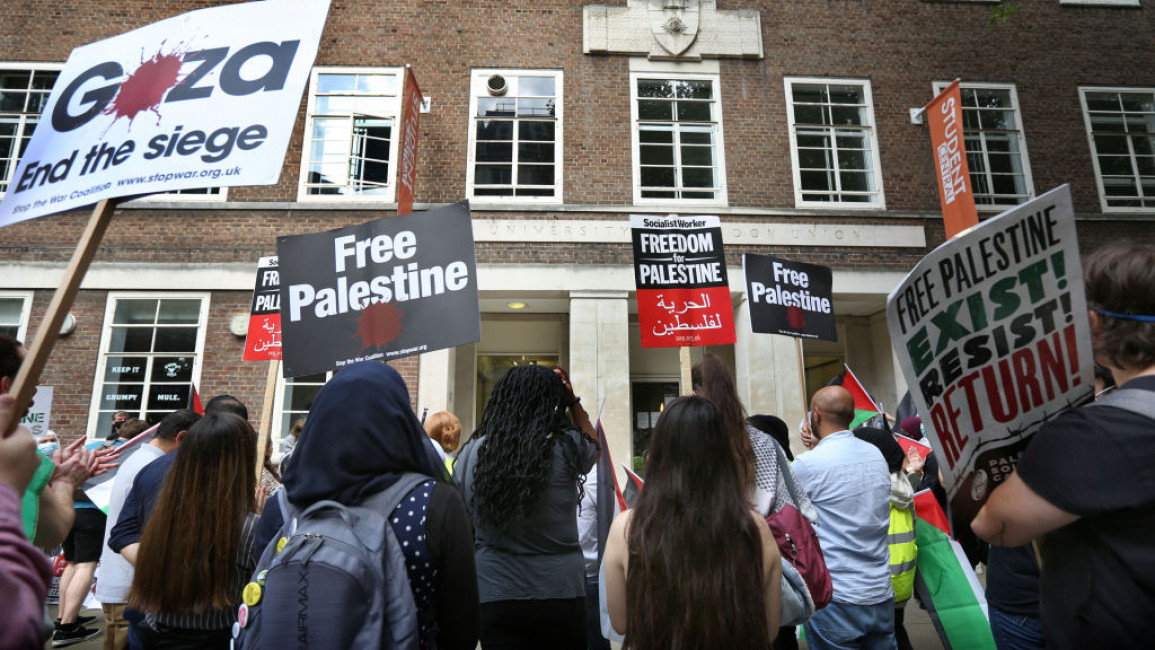Global alliance on occupied Palestine urges divestment from Israel's illegal settlements
A global alliance against Israel's occupation of Palestine on Wednesday issued its first report into how corporations enable illegal settlements, urging divestment from the outposts.
Don't Buy into Occupation (DBIO), set up last year, published its findings and held a Zoom conference featuring prominent speakers like Human Rights Watch Israel and Palestine director Omar Shakir.
DBIO has 25 members, including Palestine's Al-Haq rights NGO, the Palestine Solidarity Campaign, and Norwegian People's Aid, among other European and Middle Eastern partners.
"Israeli, European and international business enterprises operating with or providing services to Israeli settlements, play a critical role in facilitating the functioning and growth of settlements," according to the 125-page report.
It argues that firms must make certain to avoid participating in abuses, calling on companies to deal with damages to human rights caused by their operations or partnerships with other organisations.
DBIO found 672 finance firms in Europe, from pension funds to banks, were monetarily involved with 50 companies it claims "are actively involved with Israeli settlements".
The timeframe considered was from 2018 to this May, during which $114 billion was either loaned to or given as underwriting, according to the coalition.
The group also found that European companies owned bonds and shares in the 50 corporations to the tune of $141 billion in May, when Israel conducted a deadly assault on the besieged Gaza Strip.
The report comes during a time of acknowledgement of Israeli violations, as Human Rights Watch's Shakir noted at the launch: "I think we're really at a turning point when it comes to recognition of what the reality on the ground is.
"[This year] has seen numerous international human rights groups and Israeli human rights groups endorse what Palestinian civil society has been saying for years about the reality of apartheid."
His New York-based organisation was among those to conclude in a historic April report that Israel is practising apartheid.
UN Palestine human rights special rapporteur Michael Lynk underlined the significance of settlements to the dispossession of Palestinians from their land.
He said: "The settlements are the primary political instrument - the pervasive 'facts on the ground' employed by the government of Israel to advance de facto and de jure annexation claims and to deny Palestinian self-determination.
"Whatever positive benefits are cited by companies in defending their engagement with the settlements, often the employment of Palestinian labour, or the payment of local taxes, are far outweighed on the human rights ledger by the scale of gross violations inherent in the settlement enterprise."
Palestinian Authority president Mahmoud Abbas has given Israel one year to end the occupation of the West Bank, saying that he could take it to the ICJ if it fails to withdraw from occupied Palestinian territory.https://t.co/y03tKIweji
— The New Arab (@The_NewArab) September 25, 2021
As for locating alternatives to investing in settlements, it cannot fall to Palestinians to shoulder this burden, ex-mayor for the town of Al-Zawiya in Gaza insisted.
He explained: "When these enterprises started, they did not rely on profiting from the occupied Palestinian territories.
"These companies are the ones responsible [for] find[ing] alternatives for their investments."
The report urged European states to ban illegal settlement goods being brought into their countries.
They were also asked to back the UN's Office of the High Commissioner for Human Rights in revising each year its list of organisations linked to Israeli settlements.



